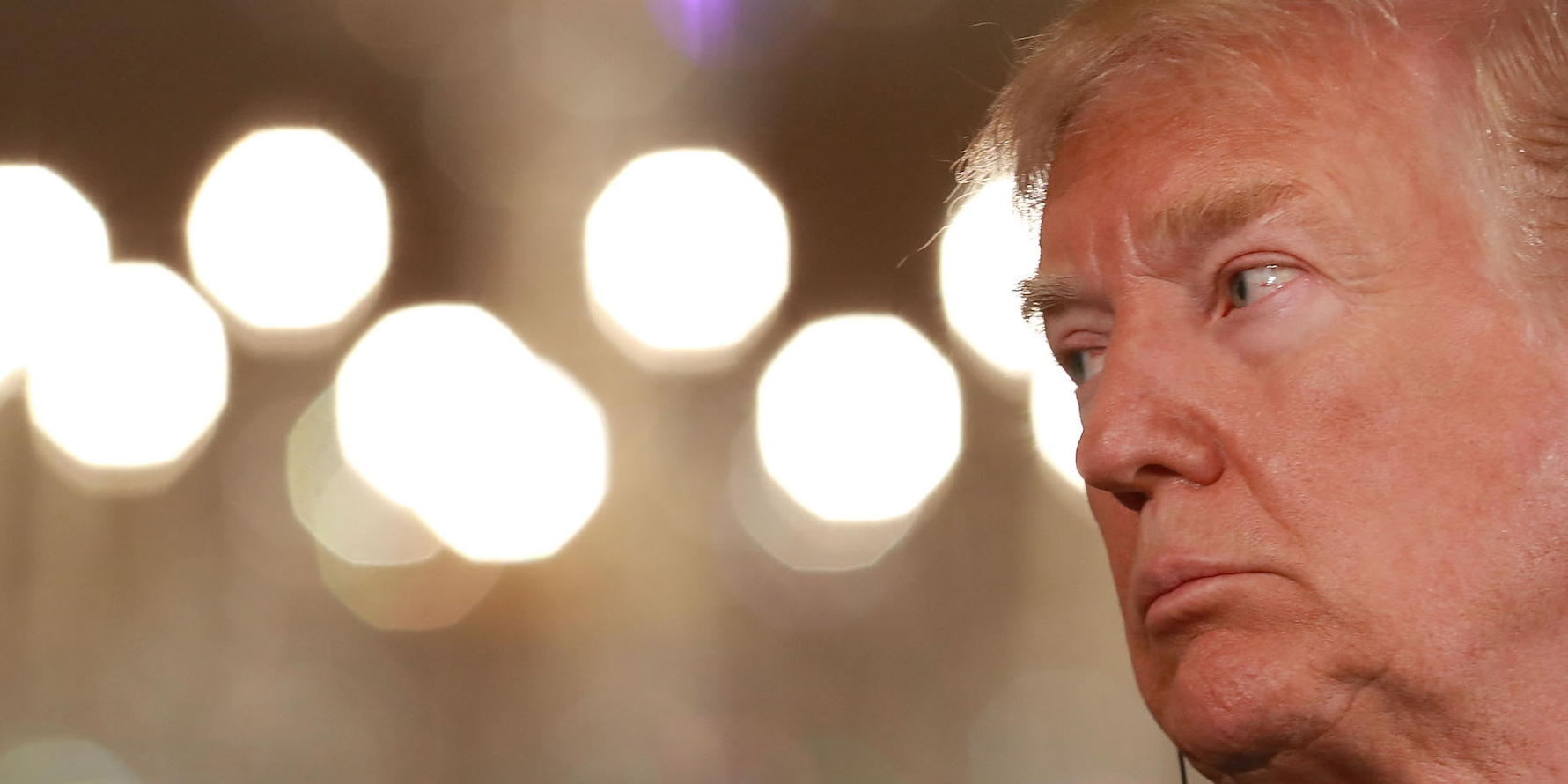- President Donald Trump will replace the White House lawyer Ty Cobb with Emmet Flood, The New York Times reported on Wednesday.
- Flood is a veteran attorney who represented President Bill Clinton during his impeachment proceedings in the 1990s.
- Cobb was a moderating force on Trump’s legal team, and his departure indicates Trump plans to take a more combative approach to the Russia investigation and the special counsel Robert Mueller.
President Donald Trump plans to replace the White House lawyer Ty Cobb with Emmet Flood, a veteran attorney who represented President Bill Clinton during his impeachment proceedings in the 1990s, The New York Times reported on Wednesday.
The White House press secretary, Sarah Huckabee Sanders, confirmed Cobb’s retirement.
“For several weeks Ty Cobb has been discussing his retirement and last week he let Chief of Staff Kelly know he would retire at the end of this month,” she said in a statement.
According to the Times report, Cobb told Trump weeks ago that he wanted to retire.
Cobb said he would stay on until the end of the month to help Flood transition into his new role.
"It has been an honor to serve the country in this capacity at the White House," Cobb told The Times. "I wish everybody well moving forward."
Cobb was in charge of handling the White House's response to requests for documents and witness interviews in the Russia investigation led by the special counsel Robert Mueller. Trump has a separate team of personal defense lawyers - led by Rudy Giuliani, the former New York mayor - tasked with managing his communications with Mueller's office.
Since assuming his role last year, Cobb has advocated a cooperative approach. His retirement comes as Trump grows frustrated with the Russia investigation, which he has characterized as a "hoax" and a politically motivated "witch hunt."
It also comes as the president increasingly relies on more-combative forces, like his allies in the right-wing media sphere and controversial legal experts, including the former federal prosecutors Joseph diGenova and Victoria Toensing.
Earlier Wednesday, Cobb defended Mueller during an interview with ABC News.

"In my view, Mueller is doing, you know, what he was assigned to do," Cobb said.
"I mean, he didn't start the investigation - he got pulled in by Rosenstein," Cobb added, referring to Deputy Attorney General Rod Rosenstein, who has overseen Mueller and the investigation since Attorney General Jeff Sessions recused himself last year.
Cobb did not immediately respond to a request for comment.
Mueller has pushed hard in recent weeks for an interview with Trump and signaled that he is close to wrapping up his investigation into whether Trump sought to obstruct justice during the Russia inquiry.
In March, John Dowd, the lawyer who spearheaded Trump's personal defense team, resigned amid frustration that Trump was not following his advice to decline an interview.
Talks of an interview briefly fell through last month after the FBI raided properties belonging to Michael Cohen, Trump's longtime lawyer, though Giuliani indicated last week that they might be back on.
Cobb appeared to signal as much during his interview with ABC News on Wednesday.
"It's certainly not off the table, and people are working hard to make decisions and work towards an interview," Cobb said. "And assuming that can be concluded favorably, there'll be an interview ... Assuming an agreement can't be reached, you know, then it'll go a different route."
Trump's lawyers duke it out with Mueller over a presidential interview

Earlier this week, The Times published a list of 48 questions Mueller plans to ask Trump, all of which deal with obstruction of justice and possible collusion between Trump associates and Russia.
Legal experts largely agreed that Trump should decline an interview, citing his tendency to make misleading and exaggerated statements.
So far, four people have pleaded guilty to lying to the FBI in the Russia investigation.
It's unclear whether Mueller would agree to forgo an interview with Trump.
News reports last month indicated that Mueller was preparing to move forward without an interview, but The Washington Post reported late Tuesday that Mueller threatened during a heated discussion with the president's legal team in March to subpoena Trump to appear before a grand jury.
The legal argument for whether the president can be subpoenaed is murky because it stems in part from the question of whether a sitting president can be indicted.
Legal experts have told Business Insider that Mueller could be pushing for a voluntary interview because he does not believe he has the authority to indict the president based on Department of Justice precedent.
The policy in question centers on a September 1973 memo, written during Richard Nixon's presidency, by the DOJ's Office of Legal Counsel.
Robert Dixon, then the office's head, wrote at the time that a sitting president could not be indicted because doing so may hinder the executive branch from "accomplishing its constitutional functions" in a way that cannot "be justified by an overriding need."
Nixon's solicitor general, Robert Bork, also submitted a court brief in October 1973 arguing that sitting presidents are immune to indictments and criminal proceedings.
In 2000, the head of the Office of Legal Counsel under Clinton reaffirmed Bork's and Dixon's judgments.
Experts floated the possibility that even if Mueller believes he can charge the president, his team most likely wants to avoid the lengthy court battle that would ensue if he subpoenaed Trump to testify before a grand jury.
Should Trump be forced to appear in court, the only way he could avoid answering questions would be to invoke his Fifth Amendment rights against self-incrimination.

